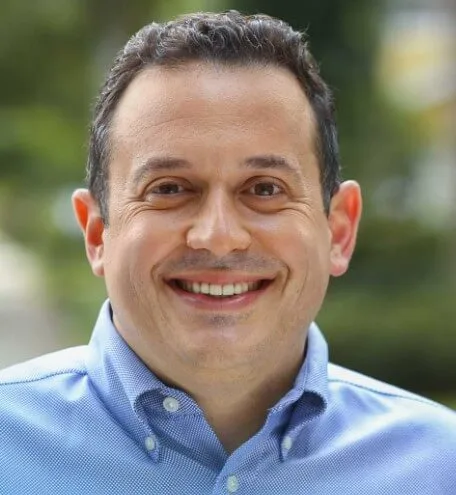
Image courtesy of Junellie González
Junellie González and Wilbert Ruperto, who were impacted by the radio telescope which collapsed on Dec. 1, highlight its importance for the scientific world and the future representation of Latinos in science.
Junellie González cannot describe in words what she felt upon seeing the Arecibo Observatory for the first time seven years ago, when she was a 16-year-old high school student.
The now-doctoral candidate, captivated by science since the fifth grade, was participating in a high school science camp when she had the opportunity to look through a telescope while visiting the Arecibo Observatory.
RELATED: Arecibo Observatory in Puerto Rico Officially Closes. It’s a Massive Blow to Science.
González ended up in the Arecibo Observatory Space Academy educational program when she was a sophomore in high school. She said she was impressed by how Arecibo—a small municipality in Puerto Rico—presented the specific geographical features that are required to house this gigantic instrument that served scientists for decades.
“It was so impressive for me to see how large the radio telescope was and how the topography in Arecibo featured a particular undulation in the terrain that accommodated the telescope,” González told The Americano. “Arecibo is the perfect place to have a radio telescope.”
Nowadays, González is completing an earth and planetary sciences doctorate at Johns Hopkins University. Her love for science took her on a career path no one in her family had explored. In Puerto Rico, the observatory would be the only place to pursue her scientific career.
Throughout her college experience, González said she has noticed how many women are becoming interested in pursuing STEM (science, technology, engineering, and mathematics) degrees.
“I see this in my college classmates and mentors,” she said. “Four of the six internship mentors I’ve had are women. It makes a difference because they’ve shown me that it’s possible to do this.”
The doctoral candidate would like to be a college professor or a researcher at the National Aeronautics and Space Administration (NASA), where she worked for a year at the Goddard Space Flight Center.
“I’ve had the opportunity to be an intern at NASA, and I loved it,” González said. “Working there or being a professor at a university would be great opportunities for me.”
Born and raised on the island, González is excited that NASA appointed Joseph M. Acabá, who is of Puerto Rican descent, as one of the astronauts in the Artemis program, which plans to send the next man and the first woman to the moon.
“It means a lot to see Latinos represented in the astronaut population,” she said. “It gives me the strength to continue studying and reaching my goals. It shows me that it is possible to go beyond.”
The young astronomer said she cried on Dec. 1, when she woke up to the news of the observatory’s collapse. For her, it represents not only the crumbling of the radio telescope, but the end of an icon of science in Puerto Rico.
“It represents so many educational programs, so many discoveries,” González said. “If those educational programs cease to exist, students in Puerto Rico will miss many opportunities.”
González is supporting the Save the Arecibo Observatory petition, in which thousands of people are asking Congress to allocate funds to rebuild the radio telescope.
“I’m in contact with the people of the Save the Arecibo Observatory movement, a grassroots effort in Puerto Rico,” the graduate student said. “We have faith that a new and better one can be built. I hope the petition gets the attention of Congress so they give the necessary funds. It is possible to rebuild it.”
A Movement of Hope
On Nov. 16, Puerto Rican student Wilbert Ruperto started an initiative with the goal of repairing the Arecibo Observatory, which at that point was in imminent danger after aging cables that supported the giant telescope were slowly unraveling.
In a matter of a few days, some 140 students from all over the island joined the effort to support repairing the structure that meant so much in their lives.
Like González, Ruperto had participated in the Arecibo Observatory Space Academy educational program when he was in high school.
The experience also led him to pursue a science career. He is now studying science and space engineering at the University of Puerto Rico, Mayagüez campus. Ruperto has been an intern at NASA several times, where he had the opportunity to serve as a team leader.
“I have many personal, academic, and professional memories that involve the Arecibo Observatory,” Ruperto told The Americano. “The mentoring I received from scientists there was key to being who I am today, to having won competitions at NASA.”
When the observatory collapsed, Ruperto changed the name of his initiative to Rebuild the Observatory, asking Congress to allocate funds to reconstruct the structure that contains, as he puts it, “the world’s most powerful and most sensitive planetary-radar system, providing unparalleled capacity to track and characterize near-Earth asteroids.”
The deadline for the Rebuild the Observatory petition is Jan. 1. Its goal is to gather 100,000 signatures—almost 63,000 people have already signed.
“Everything is moving very quickly,” Ruperto said. “There are people working on the situation. Congressmen, politicians, officials from the federal and local government are seeking technical and economic solutions. We haven’t stopped.”
Ruperto explained the support of the people is very important for Congress to act faster in processing the petition.
He says the collapse has generated worldwide interest. On the day of the incident, he received calls for interviews from England, Spain, and Colombia as he gave updates on Twitter.
“The importance of the observatory is understood throughout the world—we know we can improve the support and receive the help to rebuild the telescope,” Ruperto said.
Politics

Teamsters and UPS Reach Tentative Deal to Avoid Strike, 340,000 Workers to Get Raises
The tentative deal represents a huge win for full- and part-time UPS Teamster workers, who would get significant pay raises and better working...



One Republican Senator Is Blocking 265 Military Promotions, Leaving the Marines Without a Confirmed Leader
Sen. Tommy Tuberville's decision means these military officers are not getting the pay raises they’re owed, cannot move their families to wherever...
Local News



Teamsters and UPS Reach Tentative Deal to Avoid Strike, 340,000 Workers to Get Raises
The tentative deal represents a huge win for full- and part-time UPS Teamster workers, who would get significant pay raises and better working...



One Republican Senator Is Blocking 265 Military Promotions, Leaving the Marines Without a Confirmed Leader
Sen. Tommy Tuberville's decision means these military officers are not getting the pay raises they’re owed, cannot move their families to wherever...




